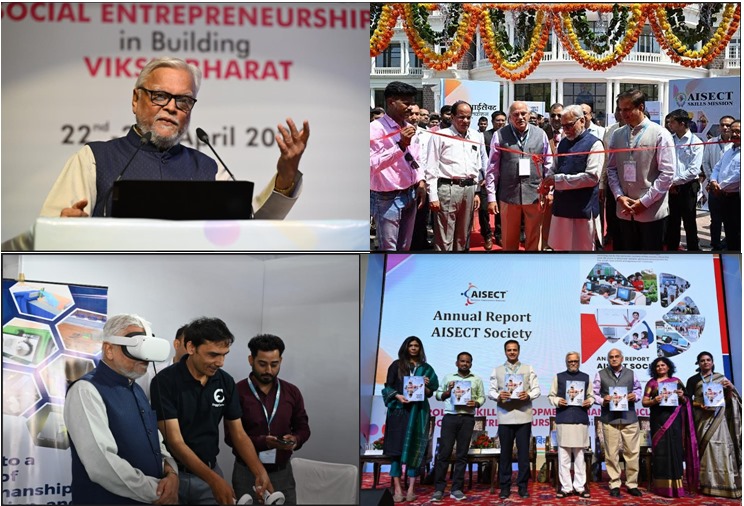CNN Central News & Network–ITDC India Epress/ITDC News Bhopal: The three dimensions of education are knowledge, character, and skill. Keeping these in mind, the National Education Policy has been formulated. Emphasizing skill development, which is the most essential aspect of today’s era, efforts are being made to involve students more actively in the National Education Policy. Because the more students develop skills, the more they can progress towards self-employment from employment. This endeavor will serve as a crucial link in India’s journey towards becoming a developed nation. These were the words of Atul Kothari, the National Secretary and Educationist of Shiksha Evam Sanskriti Utthan Nyas, during the inauguration session of the second day of the Fourth National Convention organized by ISecT.
During this time, he expressed his thoughts on “Skill Development and Social Entrepreneurship in Building a Developed India.” In addition to other dignitaries present at the program were Santosh Chaube, Chairman of ISecT; Siddharth Chaturvedi, Executive Vice President of ISecT; Kishor Thangavelu, Head of CSR at Microsoft; Shweta Gaur, Manager at Satva Consulting; and Aditi Chaturvedi Vats, Director of ISecT Group of Universities.
Speaking further in the program, Atul Kothari emphasized efforts being made at the educational level to empower women physically and mentally, stating that the stronger women are, the stronger the nation will be. Practical education has been significantly integrated into the National Education Policy so that today’s students can embrace not only theory but also practical education. It has been observed that any education is incomplete without a combination of curricular and co-curricular education, and these aspects have been duly considered in the education policy.
During the event, Kishor Thangavelu from Microsoft provided detailed information about the Microsoft Rise project, which aims to familiarize children with technology, provide training, and connect women with technology. ISecT, in collaboration with Microsoft, is successfully implementing this initiative nationwide. Meanwhile, Dr. Shweta Gaur from Satva Consulting emphasized women’s empowerment through STEM education, highlighting the lack of awareness about science, the unavailability of STEM labs, and the weak foundation of education as the main reasons for women’s disinterest in STEM education.
In his concluding remarks, Santosh Chaube, Chairman of ISecT, stated that ISecT has been a significant institution in taking computer literacy to rural areas since the 1980s. He emphasized that ISecT not only imparted computer education to rural India but also delivered it in Hindi, which helped youth in obtaining employment. As a result, later on, significant government schemes were initiated, such as Digital India, computer education, and financial inclusion, which were successfully implemented up to the rural level through ISecT centers.







